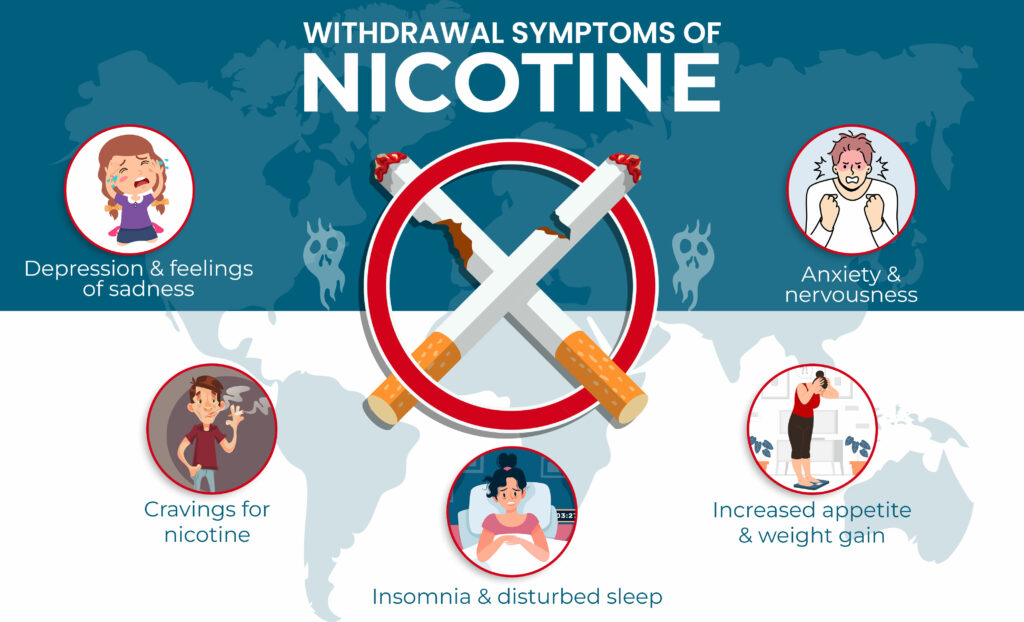Imagine waking up one morning, feeling refreshed and energized, with a newfound appreciation for life. The fog of nicotine has lifted, and you’re ready to take on the day with a clear mind and a healthy body. This is the reality for those who have successfully overcome nicotine addiction, and it can be yours too.

Nicotine addiction is a formidable foe, but it’s not invincible. With the right mindset, support, and strategies, you can overcome this addiction and set yourself up for a longer, healthier life. In this article, we’ll explore the key steps to help you kick-start your journey to a 10-year longer life, free from the grip of nicotine.
Understanding the Risks
Before we dive into the solutions, it’s essential to understand the risks associated with nicotine addiction. Smoking and nicotine use are leading causes of preventable deaths worldwide, accounting for over 7 million deaths each year. The good news is that quitting can significantly reduce your risk of developing smoking-related illnesses, such as heart disease, stroke, and lung cancer.
Preparing for the Journey
Kicking the nicotine habit requires preparation, determination, and a well-thought-out plan. Here are some steps to help you get started:
- Set a quit date: Choose a specific date to quit nicotine and mark it on your calendar. This will give you a deadline to work towards and help you prepare mentally.
- Get support: Share your decision with friends and family, and consider joining a support group or talking to a counselor. Having a supportive network can make a huge difference in your journey.
- Identify your triggers: Make a list of situations, emotions, and people that trigger your desire to use nicotine. Once you know what your triggers are, you can develop a plan to avoid or manage them.
Strategies for Success
Now that you’re prepared, it’s time to explore some effective strategies for overcoming nicotine addiction. Here are a few:
- Nicotine replacement therapy (NRT): NRT can help reduce withdrawal symptoms and cravings. Options include gum, lozenges, patches, and inhalers.
- Prescription medications: Prescription medications like bupropion (Zyban) and varenicline (Chantix) can help reduce cravings and withdrawal symptoms.
- Healthy coping mechanisms: Engage in activities that bring you joy and help you relax, such as exercise, meditation, or hobbies.
- Gradual reduction: Gradually reduce your nicotine intake over a period of weeks or months. This can help your body adjust to the decrease in nicotine levels.
Staying on Track
Overcoming nicotine addiction is a journey, not a destination. Staying on track requires ongoing effort and commitment. Here are some tips to help you stay on track:
- Reward yourself: Celebrate small milestones, like reaching a week without nicotine, with non-nicotine related rewards, such as a new outfit or a weekend getaway.
- Stay connected: Regularly attend support group meetings or counseling sessions to stay motivated and accountable.
- Be patient: Overcoming nicotine addiction is a process that takes time, effort, and perseverance. Don’t be too hard on yourself if you slip up – simply acknowledge the setback and continue moving forward.
A 10-Year Longer Life
Quitting nicotine can add up to 10 years to your life, according to various studies. Imagine having an extra decade to pursue your passions, spend time with loved ones, and live life to the fullest. By overcoming nicotine addiction, you can significantly reduce your risk of developing smoking-related illnesses and improve your overall health and well-being.
In conclusion, kicking the nicotine habit requires a well-thought-out plan, determination, and the right support. By understanding the risks, preparing for the journey, and exploring effective strategies, you can overcome nicotine addiction and set yourself up for a longer, healthier life.






